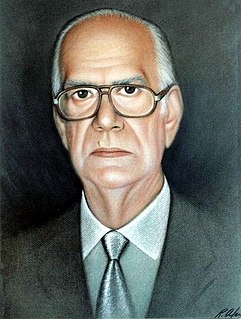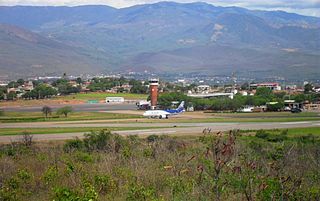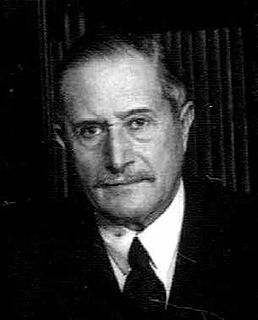Related Research Articles

Camilo Blanes Cortés, known professionally as Camilo Sesto, is a Spanish singer. He is also a songwriter, a music producer and composer of romantic pop and rock ballads in the Latino genre. Sesto sang in two pop bands during the 1960s and won a contest in a Madrid TV show. He played a part in the Spanish filming of Shakespeare's Hamlet. Later, he teamed up with singer and producer Juan Pardo, but success would come on its own accord, with his own music works. Camilo Sesto has sold over 175 million albums worldwide, excluding sales of all artists who helped and produced. More than 40 productions for him and other artists, would add up in total between 300 and 400 million albums sold throughout his career and that of others.

Camilo José Cela y Trulock, 1st Marquis of Iria Flavia was a Spanish novelist, poet, story writer and essayist associated with the Generation of '36 movement.

Córdoba Department is a Department of the Republic of Colombia located to the north of this country in the Colombian Caribbean Region. Córdoba faces to the north with the Caribbean Sea, to the northeast with the Sucre Department, east with the Bolívar Department and south with the Antioquia Department. Its capital is the city of Montería.

Lieutenant General José Félix Benito Uriburu y Uriburu was the first de facto President of Argentina. He achieved the position through a military coup, and his tenure lasted from September 6, 1930, to February 20, 1932.

José Félix Evaristo de Uriburu y Álvarez de Arenales was President of Argentina from 23 January 1895 to 12 October 1898.

Camilo Daza International Airport is a civil airport located in Cúcuta, Colombia. The airport serves the Norte de Santander Department. It is named after Colombian aviation pioneer Camilo Daza.
Camilo Sabio is a public lawyer and past chairman of the Philippines' Presidential Commission on Good Government. He previously held the position of Secretary-General in the Philippine House of Representatives from 1992 to 1998 under Jose de Venecia.
José Uriburu may refer to:
Camilo Ynitia was born in 1803, in Marin County, southern Marin, of the Huiman tribe near Sausalito. They likely traveled up to Olompali, where his father had built an adobe brick home. Camilo was a notable leader of the Coast Miwok, a Native American people. Camilo was known as the last Hoipu (headman) of the Miwok community living at Olompali. Camilo was also the only Native American on the northern frontier of Alta California to secure and keep a large Mexican-era land grant: In 1843 Governor Manuel Micheltorena of Alta California deeded him the Rancho Olompali, a large tract of land that is between present-day Novato and Petaluma, California. A part of this land now comprises the Olompali State Historic Park.
The National Autonomist Party was a conservative Argentine political party which ruled Argentina during the 1874-1916 period.
Uriburu is Basque language surname of Basque origin, which means "head of town" in the Basque language, from uri ("town") and buru. An alternative spelling is Uruburu. The surname may refer to:

The Argentine presidential election of 1931 was held on 8 November. With a turnout of 73.4%, it produced the following official results:

Carlos Ibarguren Uriburu was an Argentine academic, historian and politician. As a writer he was noted as one of the foremost academics of the history of Argentina as well as a leading expert on constitutional law. Politically he was initially associated with the liberal tendency amongst the country's intelligentsia before moving to far right nationalism in later life.
Marquess of Iria Flavia is a hereditary title in the Spanish nobility. This marquessate was bestowed by Juan Carlos I of Spain by Royal Decree 1137/1996, on 17 May 1996 on the author and Nobel laureate, Camilo José Cela Trulock, in recognition of his contribution to the Spanish language. The title recalls the Celtiberian port of Iria Flavia in Galicia, northwestern Spain, where Cela was born and is now buried.

The 1930 Argentine coup d'état, also known as the September Revolution by its supporters, involved the overthrow of the Argentine government of Hipólito Yrigoyen by forces loyal to General José Félix Uriburu. The coup took place on 6 September 1930 when Uriburu led a small detachment of troops into the capital, experiencing no substantial opposition and taking control of the Casa Rosada. Large crowds formed in Buenos Aires in support of the coup. Uriburu's forces took control of the capital and arrested Radical Civic Union supporters. There were no casualties in the coup.
Events in the year 1868 in Argentina.
Events in the year 1916 in Spain.
References
- ↑ Geneanet: José Camilo Uriburu
- ↑ Palacio, Noemí Milagro. (?). Notas sobre: José Camilo Uriburu 1914-1996 cordobés: abogado, industrial y político.
| Political offices | ||
|---|---|---|
| Preceded by Carlos Gigena Parker | de facto Federal Interventor of Córdoba 1971 - 1971 | Succeeded by Helvio Guozden |
| This article about an Argentine politician is a stub. You can help Wikipedia by expanding it. |